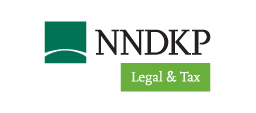It may come as no surprise to interested parties (such as textile and footwear producers, environmental specialists and activists) that the European Commission has proposed a targeted revision of the Waste Framework Directive to address the issue of textile waste (the “Proposal”).
The Proposal was announced on 5 July 2023 and it is a predictable outcome following the EU Strategy for Sustainable and Circular Textiles, announced on 30 March 2022.
Action in this area is expected for several reasons, including the huge amount of textile waste generated in the EU (12.6 million tonnes per year) and the low percentage of textile waste that is collected separately for re-use or recycling (only 22% of post-consumer textile waste).
The Proposal aims to reduce the impact on the environment and climate change and to improve the quality of the environment and public health regarding the management of textile waste in line with the waste hierarchy, giving priority to waste prevention, preparing for re-use and recycling of textiles over other recovery options and disposal. It also aims to implement the polluter pays principle.
The changes are expected to have a wide range of effects, including:
- helping to meet the existing requirement for separate collection of textile waste starting 1 January 2025
- incentivizing producers to reduce waste and increase the circularity of textile products, by designing better products from the outset to increase the re-use, preparation for re-use and recycling
- reduce greenhouse gas emissions
- create new jobs in the waste management sector.
While the Proposal also addresses the issue of food waste, this article provides an overview of some of the main changes brought in relation to textile waste, without claiming to be exhaustive.
GENERAL OVERVIEW
- New concepts are proposed, such as the concept of producer of textile, textile-related and footwear products covered by the Extended Producer Responsibility (“EPR”) scheme.
The concept is quite broad and needs to be assessed in detail.
It includes “any manufacturer, importer or distributor or other natural or legal person (…), who, irrespective of the selling technique used, including by means of distance contracts (…), either:
(a) are established in a Member State and manufactures textile, textile-related and footwear products listed in Annex IVc under their own name or trademark, or have them designed or manufactured and supply them for the first time under their own name or trademark within the territory of that Member State;
(b) are established in a Member State and resell within the territory of that Member State, under their own name or trademark, textile, textile-related and footwear products listed in Annex IVc manufactured by other producers referred to in point (a), on which the name, brand or trademark of the manufacturer does not appear;
(c) are established in a Member State and supply for the first time in that Member State on a professional basis, textile, textile-related and footwear products listed in Annex IVc from another Member State or from a third country; or
(d) sell textile, textile-related and footwear products listed in Annex IVc by means of distance communication directly to end-users, including private households or other than private households, in a Member State, and are established in another Member State or in a third country;”.
The textile, textile-related and footwear products covered by the Proposal are listed in Annex IVc of the Proposal and include a wide range of textiles such as clothing, curtains, leather goods and footwear (“textiles”).
- EPR schemes will be mandatory
This means that producers will bear the costs of textile waste management.
These costs include, among others, the collection of used and waste textiles and the subsequent waste management, the provision of information on sustainable consumption, waste prevention, reuse, preparation for reuse, recycling, other recovery and disposal of textiles, the collection of data and reporting to the competent authorities; and the support of research and development to improve sorting and recycling processes.
According to the Proposal, Member States will have to establish EPR schemes within 30 months after the entry into force of the amended Waste Framework Directive.
- Textile producers will have to register in a textile producers register
Registration will be mandatory and will include the provision of information about the producers’ business, the products they intend to make available for the first time on the market in the territory of the Member State where registration is required, and the producer responsibility organization they have designated.
The registration obligations may be fulfilled on behalf of the textile producer by a producer responsibility organization.
- Textile producers shall designate a producer responsibility organization to fulfil their EPR obligations on their behalf
A producer responsibility organization is defined as a legal entity that financially or financially and operationally organizes the fulfillment of EPR obligations on behalf of producers.
Producer responsibility organizations must be approved by a competent authority.
The Proposal provides for the application of the principle of “eco-modulation”, meaning that the financial contributions paid by textile producers to the producer responsibility organization should consider the weight of the products concerned and, for some textile products, their environmental performance.
The producer responsibility organizations must set up a separate collection system for used and waste textiles, irrespective of their nature, material composition, condition, name, brand, trademark or origin, in the territory of the Member State where they were first placed on the market.
- Specific targets for the separate collection of textiles and provisions on the shipment of used textiles
By 1 January 2025, Member States shall ensure the separate collection of textiles for re-use, preparation for re-use and recycling.
Shipments of used textiles arranged on a professional basis must:
- comply with minimum record keeping requirements, for example,
- the record of the sorting or preparation for re-use operations must be attached securely but not permanently on the packaging
- the record must include, inter alia, the name and address of the company responsible for the final sorting or preparation for re-use and
- be accompanied by certain minimum information, including by:
- a copy of the invoice and the contract for the sale or transfer of ownership of the textiles stating that they are destined for direct re-use and that they are suitable for direct re-use.
FINAL REMARKS
The next steps are for the Proposal to be considered by the European Parliament and the Council under the ordinary legislative procedure.
The proposed new changes are expected to have a significant impact on several stakeholders (for example, companies that manufacture, process, handle, sell or import textile products).
In this context, stakeholders should begin (if they have not already done so) to unpack the details of the proposed changes, assess the potential impact on their business and make their concerns known to the regulators by participating in the consultation processes as part of the legislative procedure.
The feedback will be summarized by the European Commission and presented to the European Parliament and the Council in the context of the legislative debate.
By Madalina Vasile, Managing Associate, NNDKP


